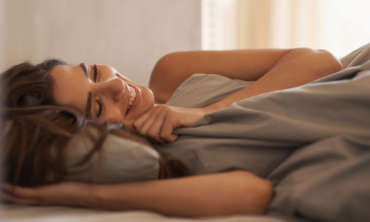


There are also people that suffer from both anxiety and insomnia, with each symptom being independent of the other. It can often be a side effect of a larger problem (known as secondary insomnia), but it can also manifest independently for many people, without a predominant cause or identifying the trigger (known as primary insomnia). Insomnia is a common sleep disorder affecting 3 million Americans that is characterized by the inability to fall asleep or stay asleep for extended periods of time. While experiencing anxiety attacks may cause many people to feel exhausted or fatigued, the act of falling asleep may actually become harder due to the anxiety and the body’s sense of worry or fear. Additionally, anxiety can cause serious sleep issues, such as insomnia. In these cases, the brain may flood the body with adrenaline, causing a person to experience heart palpitations, shortness of breath, or causing them to lose their concentration at work or school. Overall, about 40 million Americans suffer from anxiety disorders, and it is the most common mental illness in the U.S.Īnxiety disorders can be caused by very specific triggers (known as “phobias”) or can simply be excessive anxiety for extended periods of time that get in the way of everyday life, regardless of a specific trigger or actually being in danger. Occasional anxiety is not a cause for concern, but many Americans experience a much more acute, recurring, and overpowering sense of anxiety, which can be the development of an anxiety disorder. Although the dangers have changed from animal predators to a fear of being late for meetings, the physiological components of our brains haven’t changed much: our brains still see the cause of our anxiety as a “danger” and thus kicks into action trying to find a possible solution or escape route. This guide will explore the definitions and symptoms of both conditions, how they can affect each other, and what you can do to treat, manage, and potentially stop your anxiety or insomnia from disrupting your sleep.Įxperiencing occasional bouts of anxiety can be fairly common for most people, as anxiety is just an echo of our past survival mechanism of “fight, flight, or freeze” when faced with danger. If you struggle with anxiety or insomnia, or a mix of both, you’re not alone.

Additionally, both conditions can play off each other, making the other worse. Both conditions can cause you to lay awake for hours, wondering if you will ever get even a wink of sleep before your day starts again.
Insomnia help now professional#
Depending on the cause of insomnia, a referral to a mental health professional may help some people.Anxiety and insomnia are two very common problems that may hamper your ability to fall asleep. Your doctor may prescribe medication and have you try other strategies to get your sleep pattern back on track. To determine the cause and best treatment for insomnia, you may need to see a sleep specialist. If you keep having sleep problems, talk to your doctor. Also, treating insomnia may help depression symptoms improve faster. Treatment for one of these underlying conditions may be necessary for insomnia to get better. In some cases, insomnia is caused by a medical condition such as sleep apnea, restless legs syndrome or chronic pain, or by a mental health disorder such as depression. Go to another room and read or do other quiet activities until you feel sleepy. If you wake up and can't fall back to sleep within 20 minutes or so, get out of bed.If you experience increased awake time during the night, resist the urge to sleep in. If you aren't sleepy at bedtime, do something relaxing that will help you wind down. But keep in mind, exercising too close to bedtime may interfere with sleep. In addition to smoking being a major health risk, nicotine use can interfere with sleep. Both caffeine and alcohol can interfere with sleep. Avoid caffeine after noon, and limit alcohol to 1 drink several hours before bedtime.Clock-watching causes stress and makes it harder to go back to sleep if you wake up during the night. Put clocks in your bedroom out of sight.

This will help your body know this room is for sleeping. Don't engage in activities other than sleeping or sex in your bedroom. Keep light, noise and the temperature at levels that are comfortable and won't disturb your rest. Gentle yoga or progressive muscle relaxation can ease tension and help tight muscles to relax. Avoid prolonged use of electronic devices with a screen, such as laptops, smartphones and ebooks before bed. For example, drink a cup of caffeine-free tea, take a warm shower or listen to soft music.


 0 kommentar(er)
0 kommentar(er)
